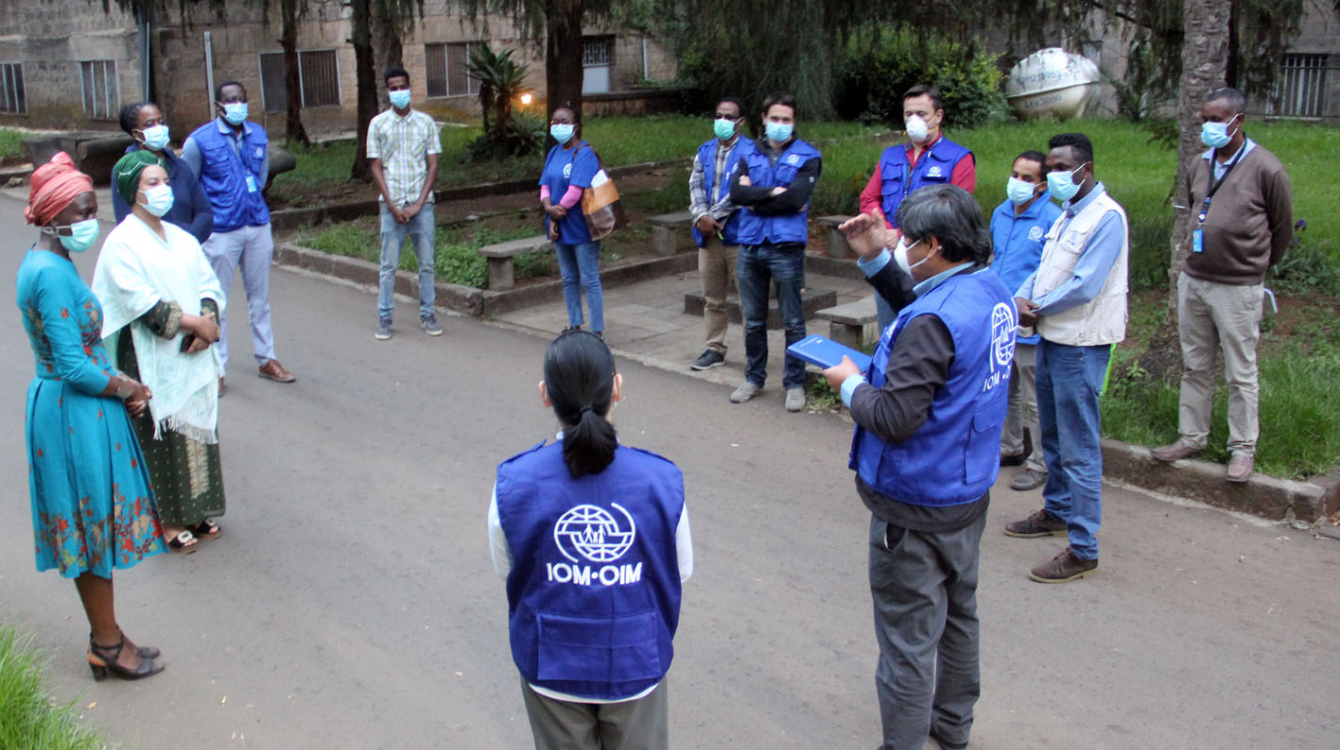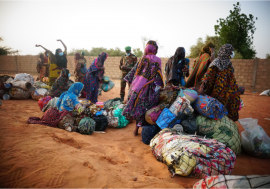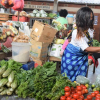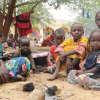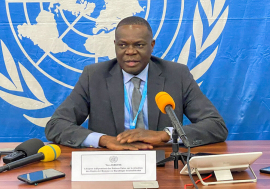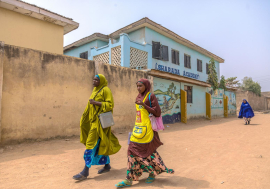Ethiopia continues to receive thousands of migrants returned from countries across the region and the Middle East, in response to the COVID-19 global health pandemic. IOM, the International Organization for Migration, is assisting more than 9,400 migrants in the country’s quarantine facilities. Migrants have been sent back to Ethiopia from the Kingdom of Saudi Arabia, Djibouti, Somalia, Sudan, and other countries over the last few weeks.
IOM is supporting the Government of Ethiopia to ensure returning migrants receive medical care, food, shelter and other assistance during quarantine and after, including helping them return to their villages. There are 124 COVID-19 positive cases in Ethiopia and three have died from the disease. There are fears that, were the disease to spread, the public health system could not cope with a major outbreak.
On Thursday (23 April), Ethiopia’s Minister of Labour and Social Affairs, Dr Ergogie Tesfaye, joined IOM’s Chief of Mission to Ethiopia Maureen Achieng, on a visit to one of the quarantine centres, Addis Ababa University’s Sidist Kilo campus, operated by the Government of Ethiopia.
The two were accompanied by the UN Resident Coordinator for Ethiopia, Dr Catherine Sozi. During the site visit, discussions were held with medical staff and managers on the needs of those under quarantine, and ways to improve the existing facilities.
“IOM’s quick response and support for returning migrants in Ethiopia is always appreciated,” Dr Ergogie said. “As the coronavirus response requires harmonized efforts from all, we appreciate the coordinated support we are receiving from UN partners as well.”
Eleven other sites in regional towns, mainly in university campuses, have been converted into quarantine locations. Over 6,800 migrants have been received in these sites where IOM is providing various materials such as bed sheets, soap, and sanitizer.
“In response to the crisis provoked by the COVID-19 pandemic, IOM staff are working on the frontlines of the national response to the pandemic as well as supporting government of Ethiopia structures deployed to work on the response,” said Chief of Mission Achieng.
“The return of migrants during this crisis threatens already stretched capacities in Ethiopia and to this end, IOM is responding to the direct needs of returnees, ensuring facilities are run efficiently, and bolstering the national response, in line with government needs.”
After completing their quarantine period in Addis Ababa and other Regional States, IOM will work with the Ministry of Labour and Social Affairs, and Ministry of Women, Children, and Youth Affairs to provide migrants with transportation to their hometowns and to reintegrate them with their families.
There are calls to ensure that migrants are treated fairly and equally as countries in the region respond to the disease. IOM is calling for the prioritization and protection of the most vulnerable and for migrants to be included in government response plans.
IOM has also assigned medical personnel to quarantine sites in Addis Ababa, and Mental Health and Psychosocial Service specialists trained and deployed to support the protection needs of migrants at quarantine centres across the country.
“It is critical to have enhanced coordination among all the stakeholders that are directly engaged in responding to the holistic needs of Ethiopians returning home. By doing so, the response to the COVID-19 pandemic is more likely to be successful," says Dr. Sozi.
The UN has called on countries to stop the detention of foreign migrants for purposes of immigration management.
It has also urged countries to work closely with relevant national, regional and continental authorities to release migrants from overcrowded and unsafe detention centres, and to provide adequate and safe shelters as an alternative.


